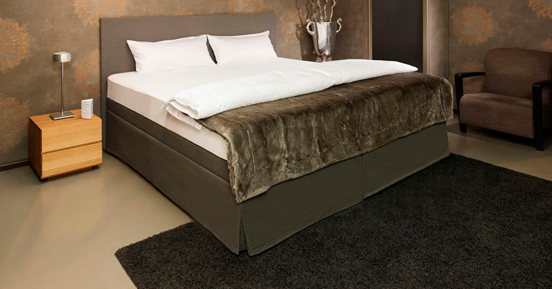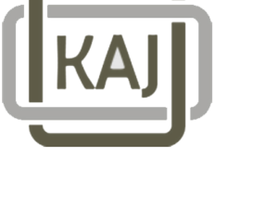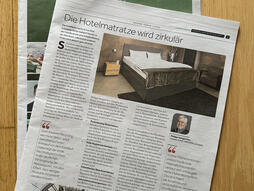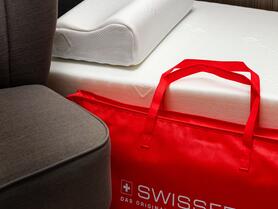
News
Compensating for Low Occupancy with Bed Hygiene
19.06.2020
Washable beds, cleaning service, and "rent and exchange" options for attracting more guests to the hotel.
The COVID-19 crisis has also brought the topic of bed hygiene into focus in the hospitality industry. With Swissfeel's washable mattresses, hoteliers can ensure maximum safety in this regard. Additionally, they can compensate for room vacancies. Jens Rosenbaum, Managing Director of Swissfeel Germany, and Philipp Hangartner, member of the Swissfeel Board of Directors, explain how in an interview.

With the COVID-19 crisis, new hygiene standards have been established for the hospitality industry. What about hygiene in the bedding area?
Philipp Hangartner: For the entire hotel bed sector, unfortunately, there were no established hygiene standards even before the COVID-19 crisis, and we suspect there will be none in the future either. The criteria catalog within the framework of the German Hotel Classification included certain minimum standards, but only for officially classified hotels. All other hotels have so far created their own—or none at all. Essentially, everyone could and still can do what they want. Even in the criteria catalog, there is no definition of what constitutes a clean bed or how a mattress should be cleaned to meet a certain hygiene standard. What this will look like post-COVID is still unclear, but we fear that the bed will be forgotten in the discussion. Yet it is the place where the guest spends the longest and most intensive part of their stay. The supply industry, including laundries, could largely meet a medical-grade hygiene standard immediately. This would require appropriate products and cleaning procedures in accordance with RAL-GZ 992/2 ff., but such measures incur costs, which is why many hotels shy away from committing to enforceable hygiene standards.
What are the advantages of washable mattresses compared to using hygiene covers?
Jens Rosenbaum: There are three main advantages: improved sleeping comfort, enhanced hygiene, and greater, more predictable economic efficiency. Let’s start with the disadvantages of protective covers (also called encasings). A hygiene cover, essentially a waterproof film, adds an extra layer on the mattress. This layer hampers or blocks the natural metabolic processes that the body carries out through the skin during sleep. This can lead to sweating, which negatively affects sleep quality. Additionally, this extra layer increases the surface tension of the mattress, promoting pressure points. Both are detrimental to sleeping comfort. Since this film cannot process metabolic waste products as a mattress can, a layer of grime accumulates over time, becoming more concentrated with each passing night. A hygiene cover would need to be replaced and cleaned for each new guest to ensure cleanliness, but this is rarely done. Consequently, guests often sleep, separated only by the bed sheet, on the accumulated grime of previous occupants. This is far from hygienic! A 2019 study on hotel bed hygiene also revealed that hygiene covers do not guarantee mattress cleanliness. As a result, non-washable mattresses would need to be disposed of if soiled, even if they were recently purchased. All these issues are avoided with washable mattresses. They allow natural breathability and avoid increased surface tension. The mattress absorbs impurities, directs them inward, and prevents the formation of a grimy film on the surface. Because washing removes all foreign substances without residue, there’s no need to dispose of the mattress before it reaches its physical lifespan of 10 or even 20 years, depending on usage. This ensures better and safer financial planning.
Swissfeel not only manufactures washable mattresses but also offers a cleaning service. How does this work in practice for hoteliers?
Jens Rosenbaum: It works similarly to hotel linen rental services. To keep rooms available, clean mattresses are placed on the beds when the soiled ones are collected by the service provider. The number and intervals of mattresses to be washed are individually agreed upon and handled flexibly. This allows all mattresses to be cleaned seamlessly within a defined cycle, including a hygiene certificate.
Hoteliers don’t necessarily have to buy from you; they can also rent or even exchange. How does the latter work?
Philipp Hangartner: Renting works similarly to hotel linen rental services, with the number of mattresses and cleaning intervals defined in a contract over a specified duration. In the exchange model, the hotel purchases the mattresses and pays with accommodation vouchers. Swissfeel collaborates with a financial service provider who manages and markets these vouchers. This model allows a hotel to convert unused occupancy into capital by utilizing vacant room capacity.
What makes Swissfeel particularly sustainable?
Philipp Hangartner: Since the Swiss mineral foam we use is fully washable, we can take back our products at the end of their service life, sanitize them, and repurpose them for applications such as upholstery or insulation materials for construction. This prevents resource wastage, as all other mattresses typically end up in incineration.
Thank you for the interview!
Original article from Gastroinfoportal – B&L Medien / FleischNet / Moproweb:
www.gastroinfoportal.de
DAS KÖNNTE DIR AUCH GEFALLEN
 April 18, 2023
April 18, 2023Nachhaltiges Engagement für die Hotellerie
Von Hasenkampf bis Swissfeel, BLUESTEWO und Belurra – Ziel ist die Erweiterung umweltfreundlicher Produkte und nachhaltiger Dienstleistungen. October 06, 2025
October 06, 2025Handelsblatt präsentiert zirkuläre Hotelmatratze: doppelter Kreislauf als Modell für nachhaltige Hotellerie
Der Hersteller Swissfeel bietet mit seinem SWISSFEEL-2-CYCLE-System eine Lösung, die Hygiene, Ökologie und Wirtschaftlichkeit vereint – Gesetzgeber, Branche und Umwelt profitieren zugleich.- June 03, 2025
DEHOGA Akademie will für Hygienestandards neues Zeichen setzen: Selbstlernkurs zur Betthygiene gestartet
Swissfeel begrüsst stärkere Gewichtung des Hotelbetts innerhalb des Klassifizierungssystems.





